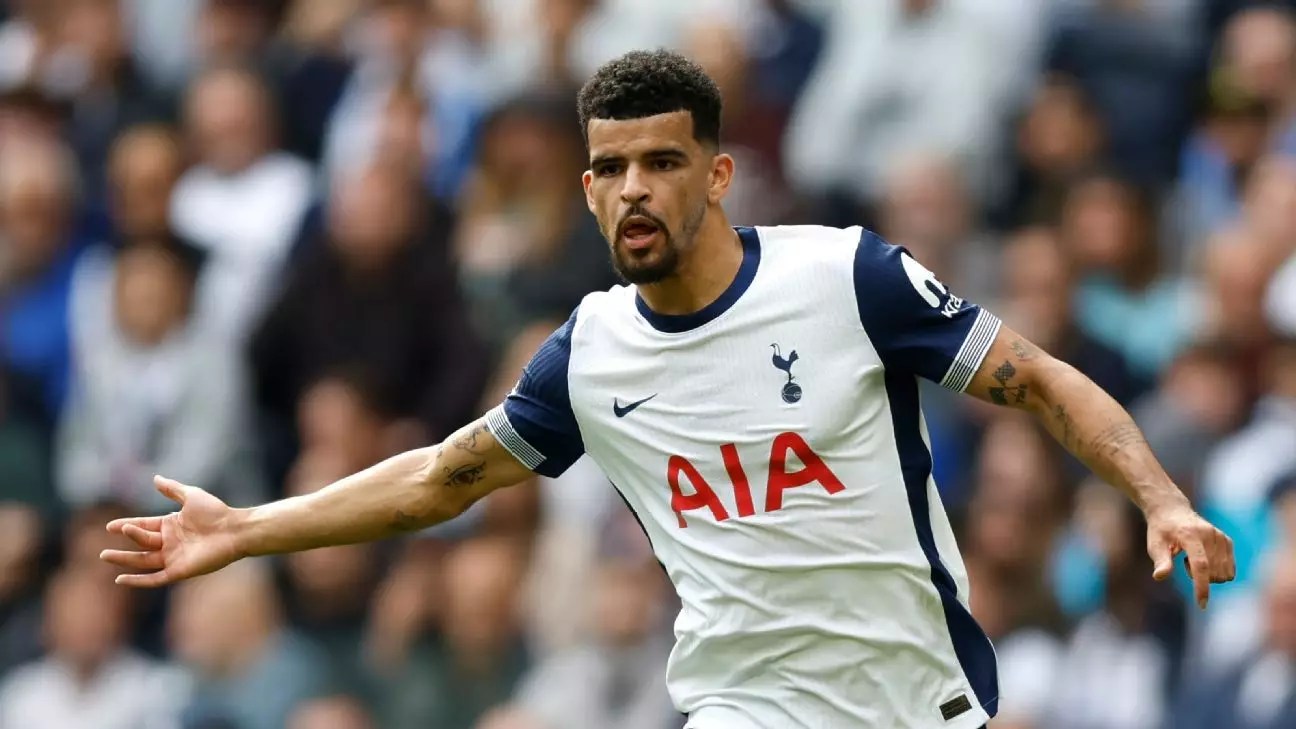Illicit expectations often accompany high-profile transfers in football, and Dominic Solanke’s recent £65 million move from Bournemouth to Tottenham Hotspur is no exception. As the club’s record signing, the 27-year-old striker is thrust into a spotlight Fraught with scrutiny. However, it is essential to examine the circumstances surrounding Solanke’s integration into the Spurs squad, particularly considering his unfortunate ankle injury sustained on his debut. A rush to judgment based on a handful of appearances will not only be premature but potentially detrimental.
Ankle injuries can significantly hinder a player’s ability to perform at their peak, rendering discussions about scoring records and contributions overly simplistic. Solanke’s struggles in the recent north London derby against Arsenal accentuate this reality, as he appeared to lack match fitness and sharpness in front of goal. Yet, these initial barriers should not overshadow his potential contributions. Coach Ange Postecoglou rightly identifies that Solanke’s performance should not be evaluated through a narrow lens, especially given that he has only played minimally after his transfer. By focusing exclusively on immediate results, one risks overlooking a player’s adaptability and resilience in recovery.
Postecoglou’s call for calm amidst public scrutiny sheds light on a prevailing issue in modern football where instant gratification often overshadows long-term assessment. Fans and media alike tend to exhibit impatience when a new signing does not hit the ground running, leading to potentially dismissive evaluations of their abilities. Postecoglou champions the perspective that a small sample size of performances cannot accurately represent a player’s true capacity. He advocates for a thoughtful approach to evaluation, urging stakeholders to refrain from rash conclusions.
The beauty of football lies in its unpredictability; players can experience ebbs and flows in form that do not inherently reflect their capabilities. The notion that Solanke needs time to regain full fitness and reintegrate into the team is critical. As fans and analysts become quick to pounce on perceived shortcomings, they risk overlooking the broader narrative of a player’s journey and potential.
Criticism of managerial tactics and team performance often runs rampant, particularly in a volatile football environment. Following a shaky start to the Premier League season, where Tottenham claimed only one victory in their first four matches, Postecoglou found himself facing the brunt of public disapproval, exemplified by discontent among traveling supporters during the Carabao Cup match against Coventry. Yet, the Australian coach emphasizes the importance of remaining steadfast in their objectives and rejecting external pressures.
In challenging times, the role of leadership becomes even more paramount. Postecoglou is attempting to establish a distinct footballing identity for Spurs while simultaneously navigating the trials of a new season. By prioritizing a long-term vision over immediate fan satisfaction, he illustrates the virtues of clarity and focus in his management approach. Engendering a robust team culture necessitates a deliberate strategy rather than a knee-jerk response to external noise.
As Tottenham prepares for their match against Brentford, it is clear that Solanke’s season and the club’s ambitions are deeply interconnected. Solanke’s recovery and subsequent adaptation to the Premier League will not only define his individual career but also influence Tottenham’s trajectory this season. As Postecoglou stated, the team is focused on building towards a future that factors Silverware aspirations while ensuring that new signings like Solanke can flourish without the weight of undue expectations.
The path forward for both Solanke and Tottenham is characterized by patience and understanding. A collective commitment to embracing longer-term goals rather than succumbing to the immediacy of public judgment may ultimately unlock the potential lurking within the squad. As the footballing world continues to evolve, the emphasis on thoughtful assessment and supportive environments can help navigate the highs and lows of the beautiful game.


Leave a Reply